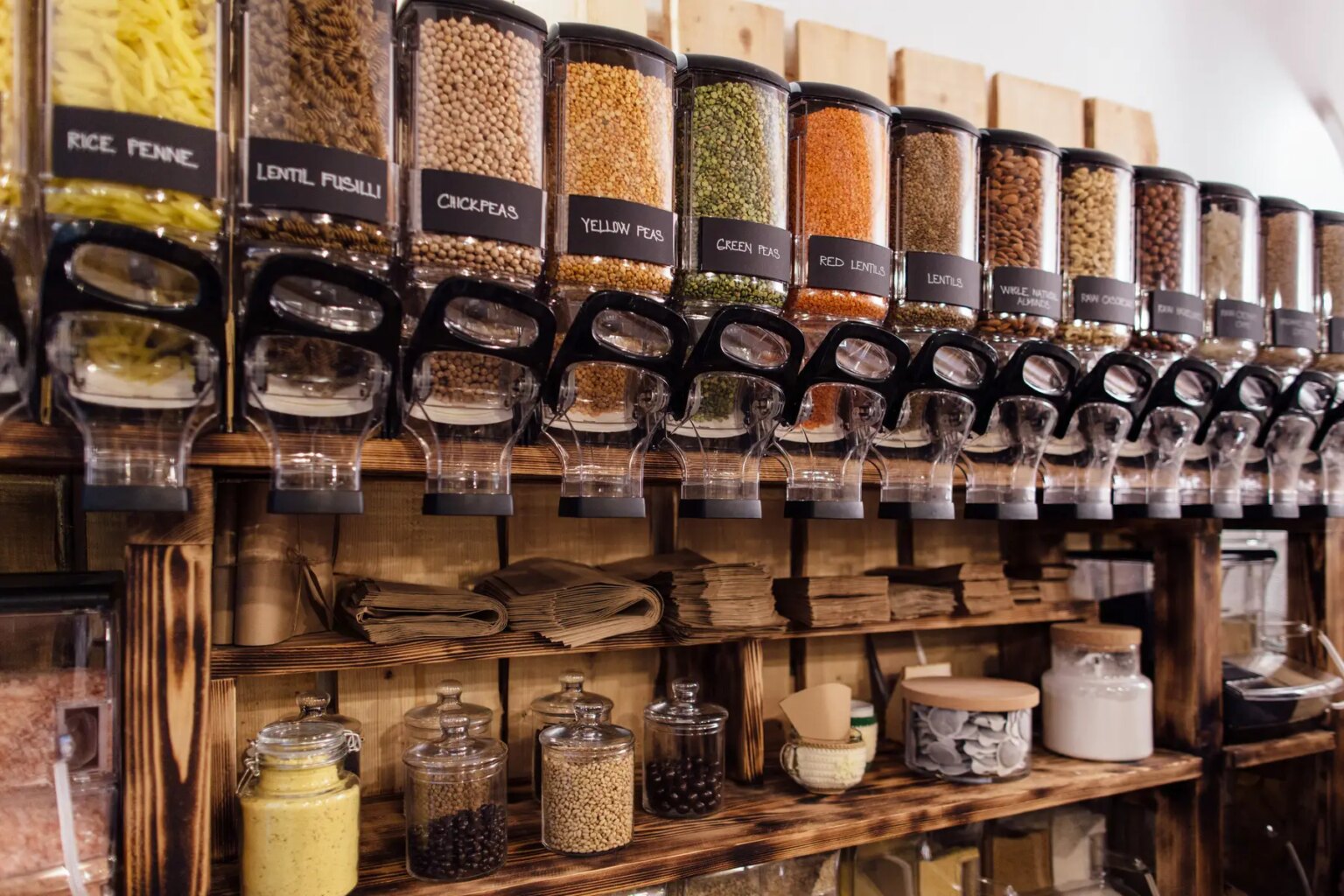We’ve all seen the heartbreaking images published by National Geographic that reveal the devastating impact of plastic waste on birds, fish, and marine life in the world’s oceans. The shocking reality is that more than 300 million tons of plastic is produced every year.
Alarmingly, around 50% of this is used just once, only to be tossed into landfills and the sea; where it can take up to 1,000 years to biodegrade. Plastic grocery bags, food packaging, drinks bottles, cutlery, and straws are the main culprits that contribute to the eight million tons of plastic littering the ocean each year.
And with the rate of plastic pollution predicted to double by 2030, it is clear that the power to make positive changes lies largely in the hands of the consumer. While recycling is one route you can go down, a study published in Science Advances claims this doesn’t always give your plastic waste a new life.
In fact, a whopping 91% of plastic isn’t recycled. Only 9% of all plastic waste ever produced has been recycled; leaving 12% to be incinerated and 79% to be accumulated in landfills, dumps, and the ocean. With this in mind, it is clear that reducing the amount of plastic we use in the first place is a far more effective solution.
While this might sound like a tall order, it’s surprisingly easy to do. Just take a look at these simple ways to save plastic – not to mention cash – with minimal effort.
1. Don’t buy bottled water
It may sound overly simple, but given that one million plastic bottles are sold every minute around the world, resisting the temptation to buy bottled water is a great first step in reducing our daily plastic consumption. While it’s important to stay hydrated when out and about, carrying a reusable bottle is a far more environmental solution. Thankfully, these are available to buy in all shapes, sizes, and designs, ranging from as little as US$10 to US$30. Made from durable materials, they can last for years.
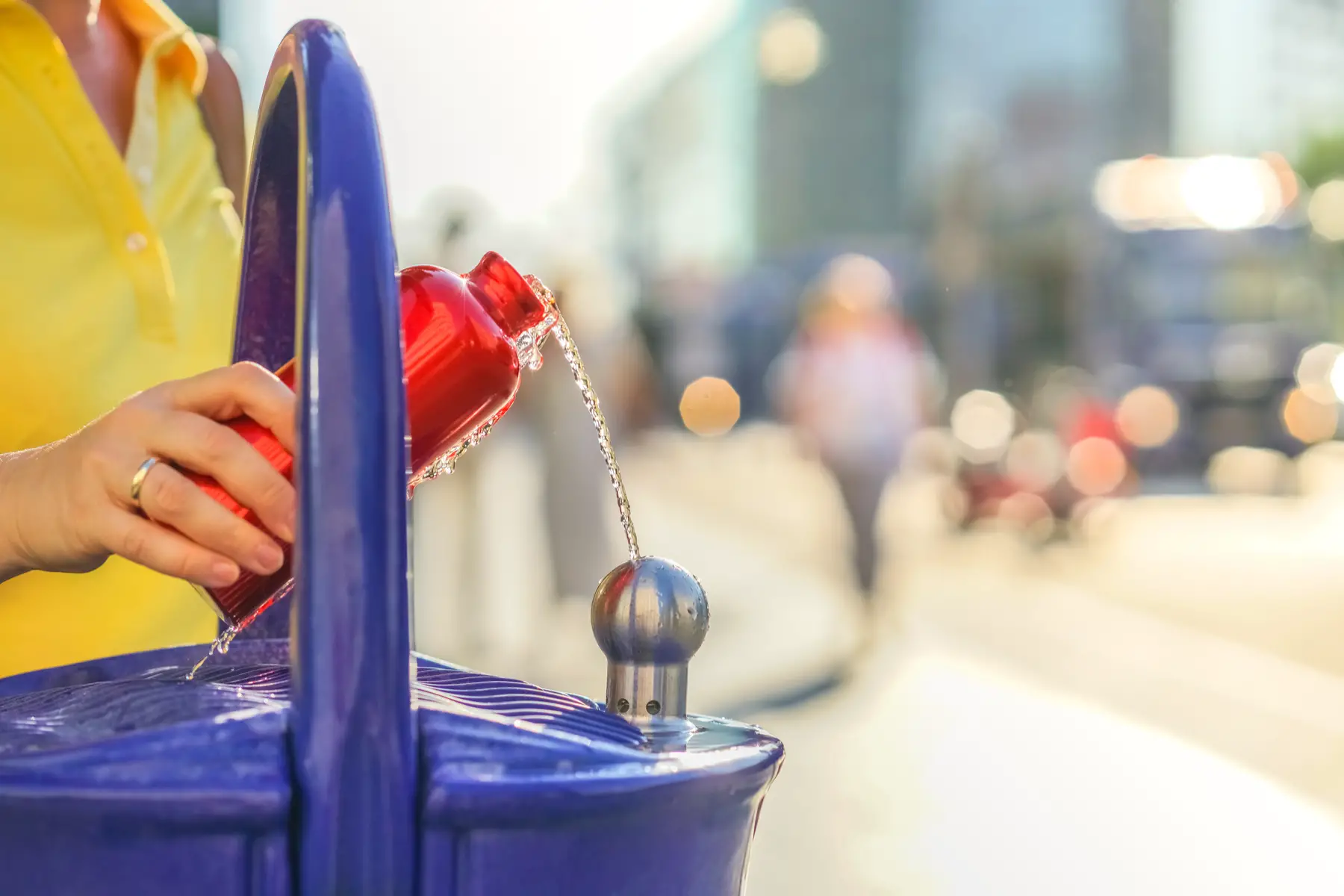
Fortunately, water refill stations are popping up all over the world, allowing us to top up our bottles while on the go. Handy global refill apps such as Refill, Tap, and RefillMyBottle, also allow us to find the nearest station. And if you live in one of the 187 countries where it is advised not to drink the tap water, investing in a home water filter is a great solution. For as little as US$25, you can help protect yourself and your family from potentially harmful contaminants; all the while eliminating plastic bottles from your home. This won’t just save you valuable fridge space, but also cash in the long-run.
2. Bring your own thermos to the coffee shop
Speaking of refilling bottles, bringing your own thermos to your local coffee shop is another great way to reduce plastic waste on a daily basis. After all, while disposable coffee cups might look like paper, they usually contain a polyethylene lining that makes them waterproof. This type of plastic resin makes them un-recyclable, meaning they end up in landfills; along with the plastic lids and stirrers that accompany them. If you take into account the fact that 16 billion disposable coffee cups are used and disposed of each year, that’s an awful lot of unnecessary waste.
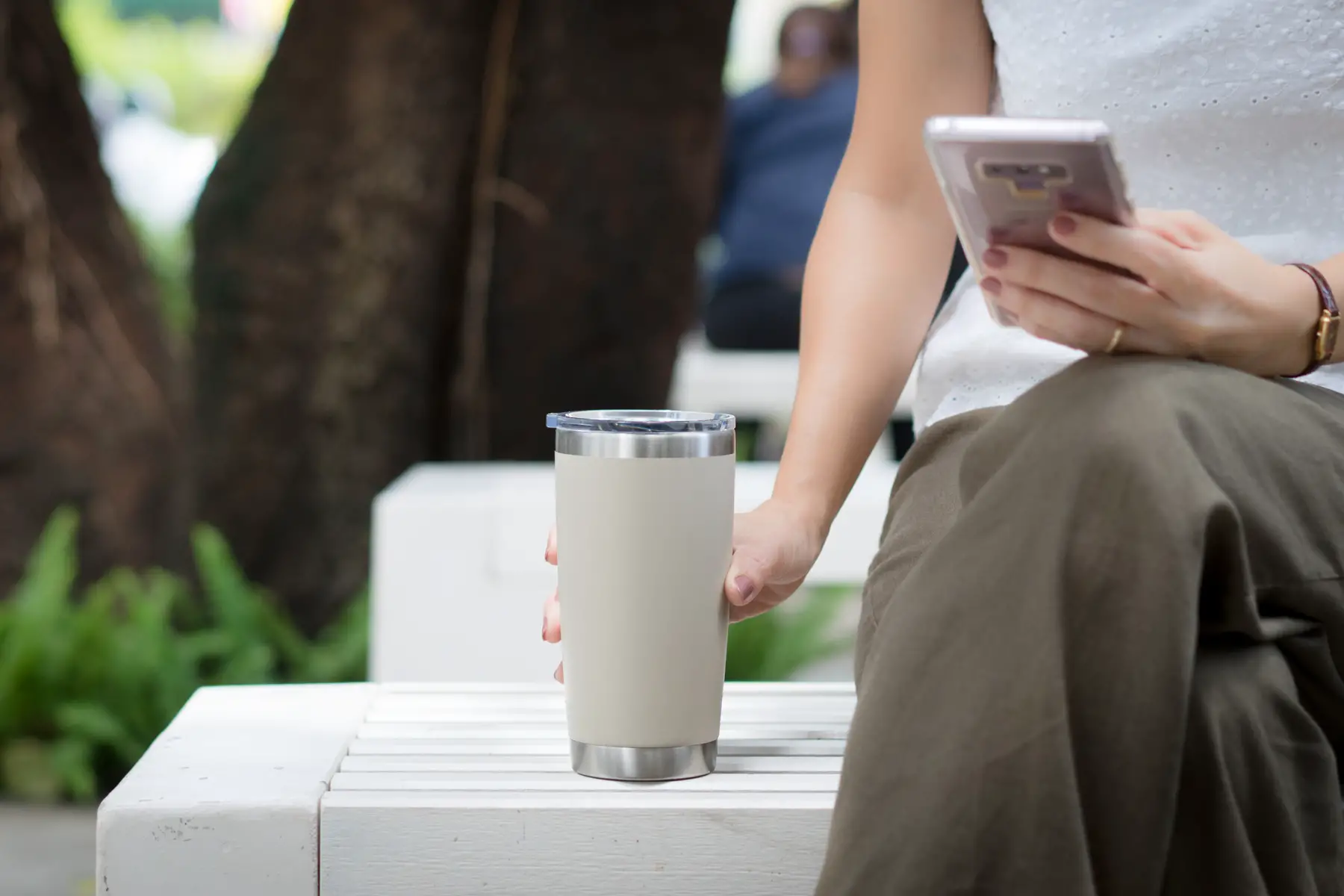
Luckily, there are countless reusable coffee cups on the market that enable you to get your caffeine kicks without harming the environment. These are made from a variety of durable materials such as recyclable plastic, glass, and bamboo fibers. They also come in a range of prices to suit every budget. Investing in one can also save you money, as many independent coffee shops and high-street chains offer discounts to customers who bring their own cups. Starbucks, Costa Coffee, and Pret a Manger are among those that offer this incentive. Just think, you can save money and help the environment before you’ve even reached the office. Not bad, right?
3. Say no to plastic straws
There is much discussion around the world about banning plastic straws and stirrers in order to address the plastic pollution problem. After all, in the United States alone, an estimated 500 million straws are used and thrown away every single day. Fortunately, numerous food and drink outlets are ditching them in favor of biodegradable substitutes; these include paper, bamboo, stainless steel, and even potato starch. But despite these efforts, plastic straws remain a big problem. One study published in 2017 even estimated that as many as 8.3 billion plastic straws pollute the world’s beaches.
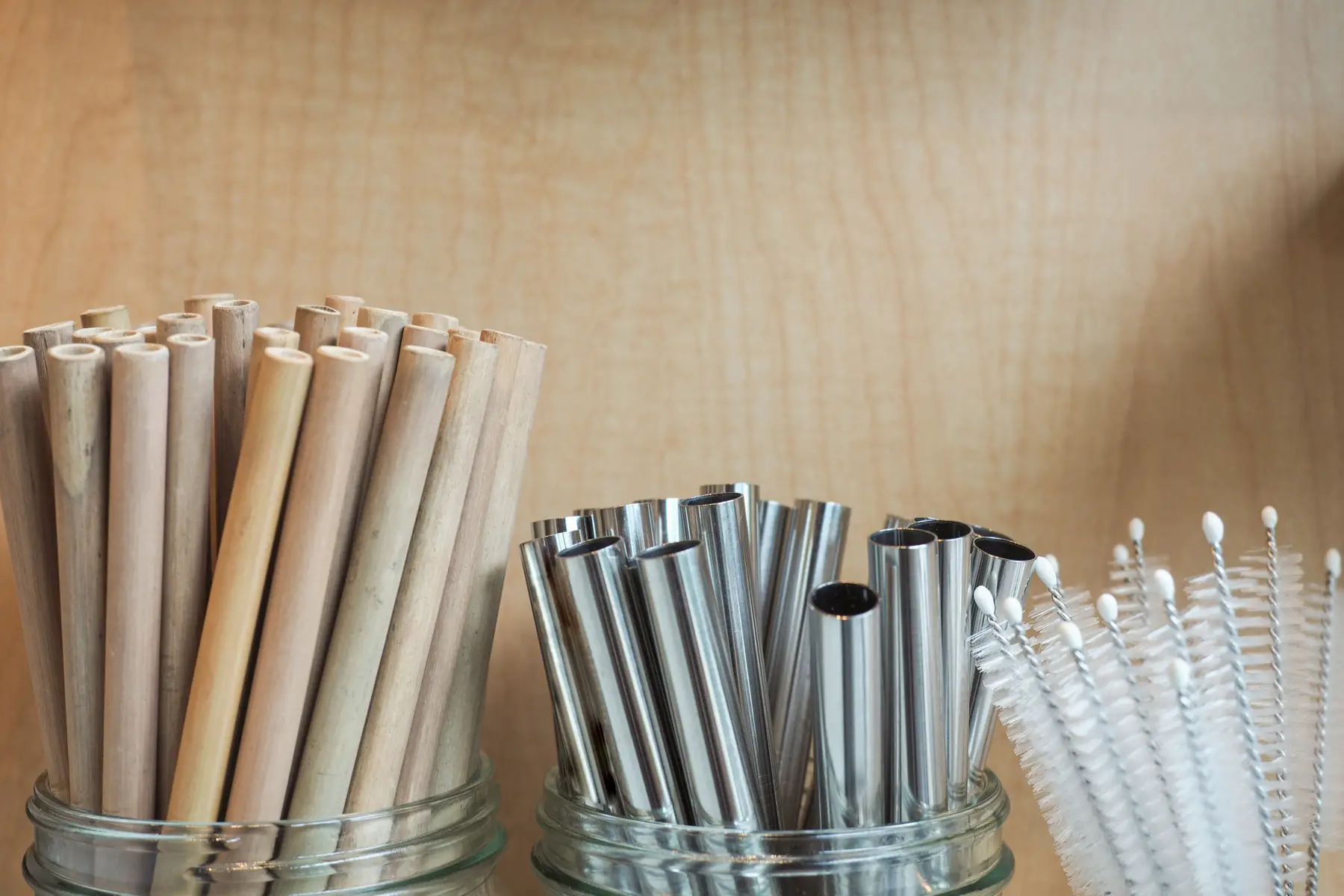
Until plastic straws are completely eliminated, the obvious solution is to simply ask servers to refrain from putting them in your drinks. One popular online movement which has gained traction on Twitter is #RefuseTheStraw. This promotes the idea that if every person in the world said NO to plastic straws, it would help the cause tremendously. Some people are also choosing to carry their own reusable straws. And with so many options on the market, it couldn’t be easier to make this small step.
4. Bring your own shopping bags to the supermarket
While tote bags might seem like a passing fashion fad, they are much more than just a trendy accessory. Each year, around 500 billion plastic bags are used worldwide; only to end up in landfills and the ocean, where wildlife can become entangled in them or eat them. Bringing your own reusable bags to the supermarket can therefore help alleviate the problem. This can also save you money, as many grocery stores offer a discount to customers who bring their own bags. Many countries have bans, taxes, or charges already in place or pending. However, until plastic bags are a thing of the past, the power to make a positive change once again lands with the consumer.
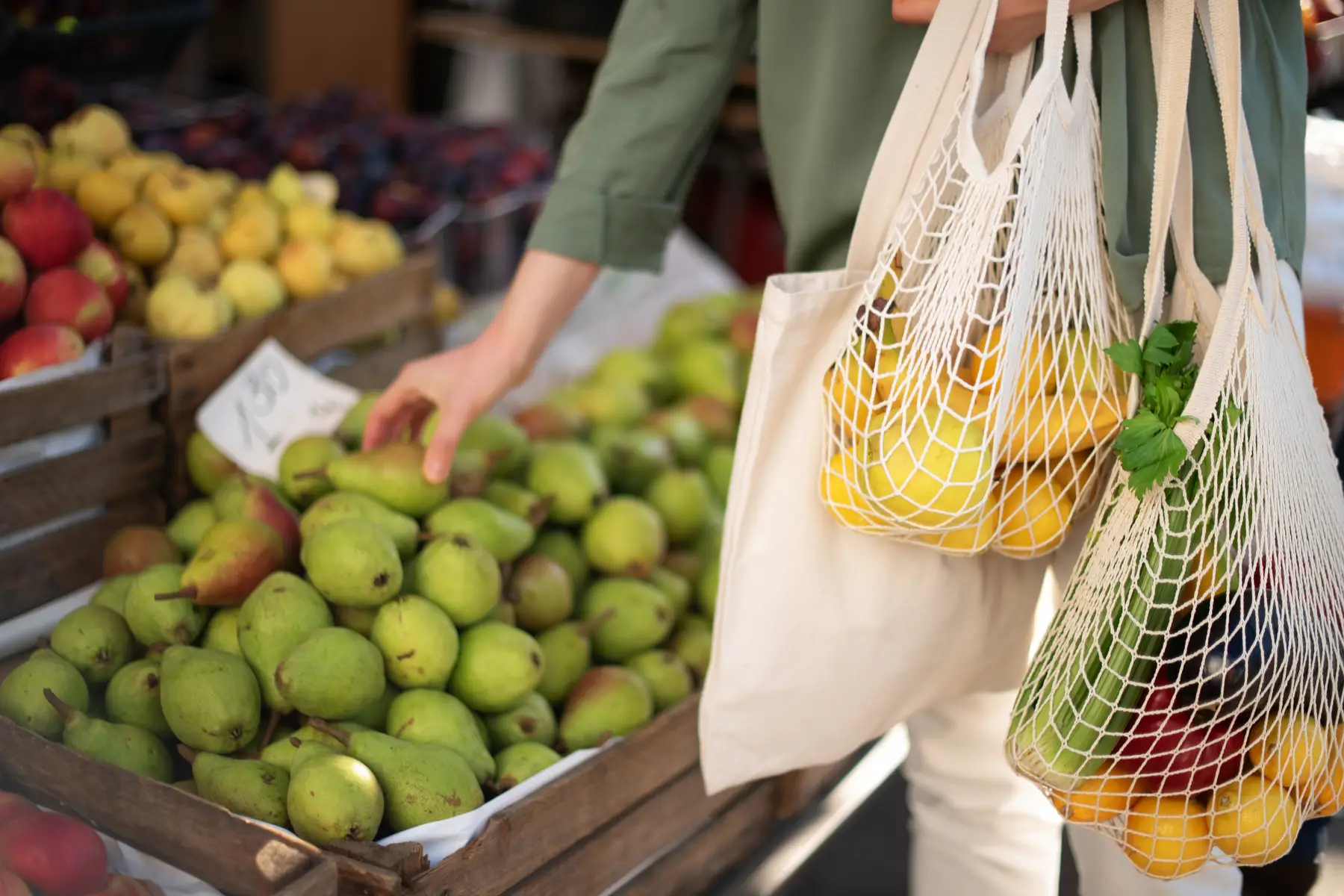
While it might be tempting to just pay the small fee for a bag at the store rather than bring your own, this cost soon adds up; especially when you take into account how frequently you shop for groceries. Tote bags are also known to be much sturdier and less likely to cave under pressure than plastic ones. Therefore, you don’t have to worry about them splitting and shattering your bottle of wine in the car park. Not only that but just think of all that extra space you can reclaim under your kitchen sink or pantry where your stash of supermarket bags usually piles up.
5. Shop at your nearest zero-waste store
Fortunately for the environment, the concept of zero-waste stores has grown in popularity in recent years. Although Unpacked was the first to open in London in 2007, it wasn’t until 2018 when zero-waste stores became a serious global campaign. Today, there are more than 500 of them located around the world. Most are based in Europe, however, they are also popping up in the U.S, Canada, and Southeast Asia. Often filled with grains, pasta, seeds, and dried fruit served from hoppers, these stores enable customers to fill their own reusable containers, thus eliminating the need for unnecessary plastic packaging. While there, shoppers can also pump washing-up liquid, laundry detergents, and liquid toiletries into their own squeezy bottles.
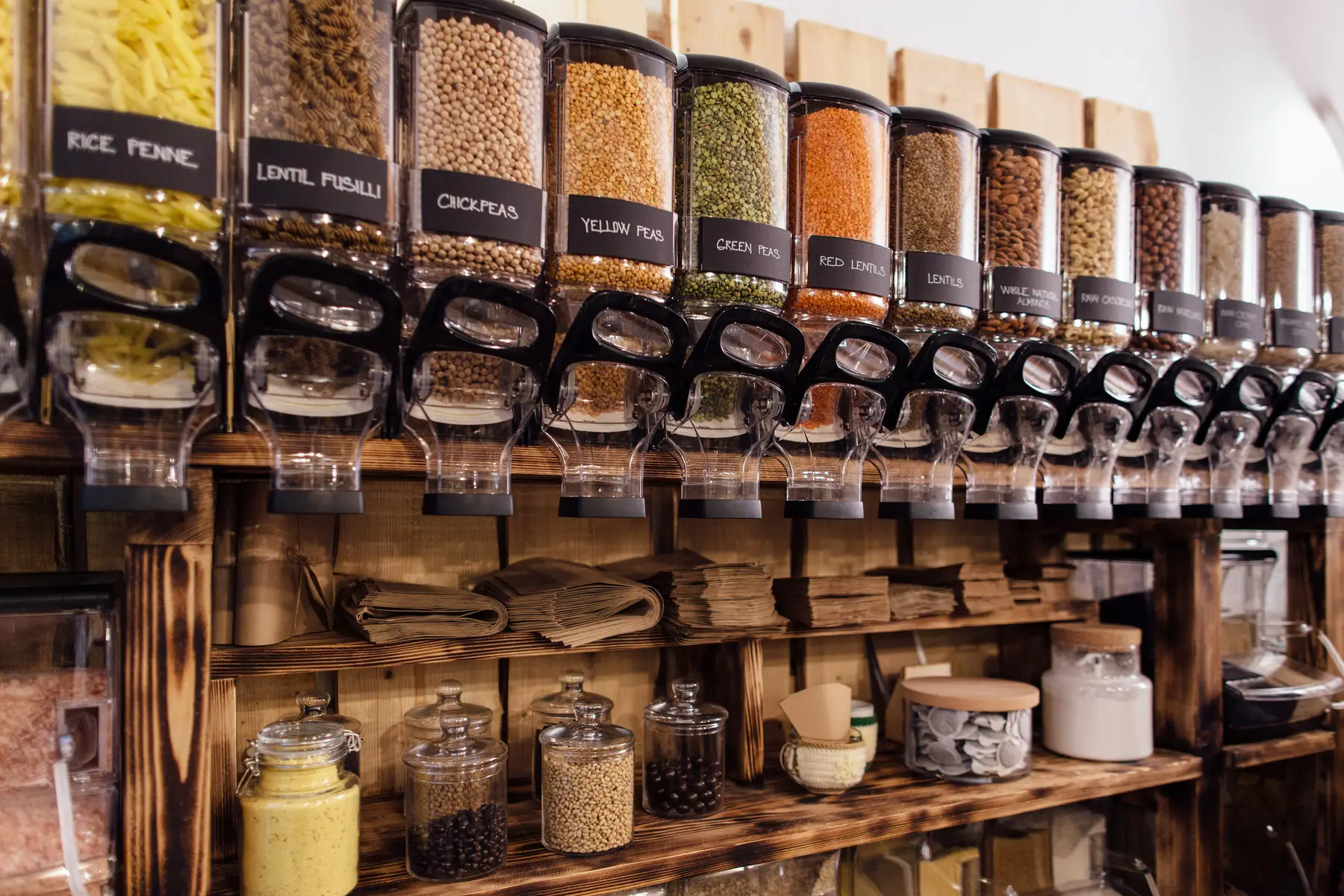
These stores often sell a range of environmentally-friendly products, too; such as bamboo toothbrush holders, plastic-free dental floss, and fair-trade chocolate and coffee. Shopping at zero-waste stores and supporting the cause is an excellent way of helping to reduce plastic waste. Not only that, but many of these stores also adhere to other societal advocacies such as supporting local farmers. The good news is that the trend in ethical shopping shows no signs of slowing any time soon.
6. Avoid products that contain microbeads
Many people remain unaware of the environmental impact that their daily face scrub or toothpaste has on the environment. But the sad truth is that many of today’s cosmetic and personal care products contain microbeads that end up causing harm to marine life. These small, spherical, plastic beads are designed to help with exfoliation in body scrubs, toothpaste, and shower gels. However, once they are rinsed off and washed down the drain, they often slip through waste-water treatment plants and end up in the sea. Here, they are ingested by marine organisms which can end up becoming poisoned by the additional toxic chemicals, such as pesticides and flame retardants, which are absorbed by the beads. Fortunately, some countries, including the UK, US, Canada, and New Zealand, have already imposed a ban on the sale of products that contain them.

Major companies such as Johnson & Johnson, Unilever, and Procter & Gamble, have also pledged to phase out microbeads. However, much criticism remains over whether these manufacturers are actually honoring their commitment. In the meantime, many products containing these harmful particles remain on store shelves across the globe. And until they are removed for good, the simple solution is to stop using and buying products that contain microbeads. To do this, you can check the label for ingredients like ‘Polypropylene (PP)’ and ‘Polyethylene (PE)’. And if you really can’t part with your daily scrubs, you can opt for products that contain natural exfoliants; including oats, salt, sugar, coffee grounds, and sand.
7. Give shampoo bars a try
Tired of all those chunky shampoo and toiletry bottles clogging up your precious bathroom space? What perhaps makes it worse is knowing that they will likely end up in the huge pile of plastic rubble polluting the planet. Well, thanks to the handy shampoo bar, there is now a solution to both of these problems. Fitting neatly into the palm of your hand, these innovative bars are the perfect solution to eliminating plastic from your bathroom cabinets; thus helping you to reduce your daily plastic consumption. Not only that, but some bars are known to last for up to around 80 washes; outlasting two to three bottles of liquid product, therefore saving you money in the long-run.
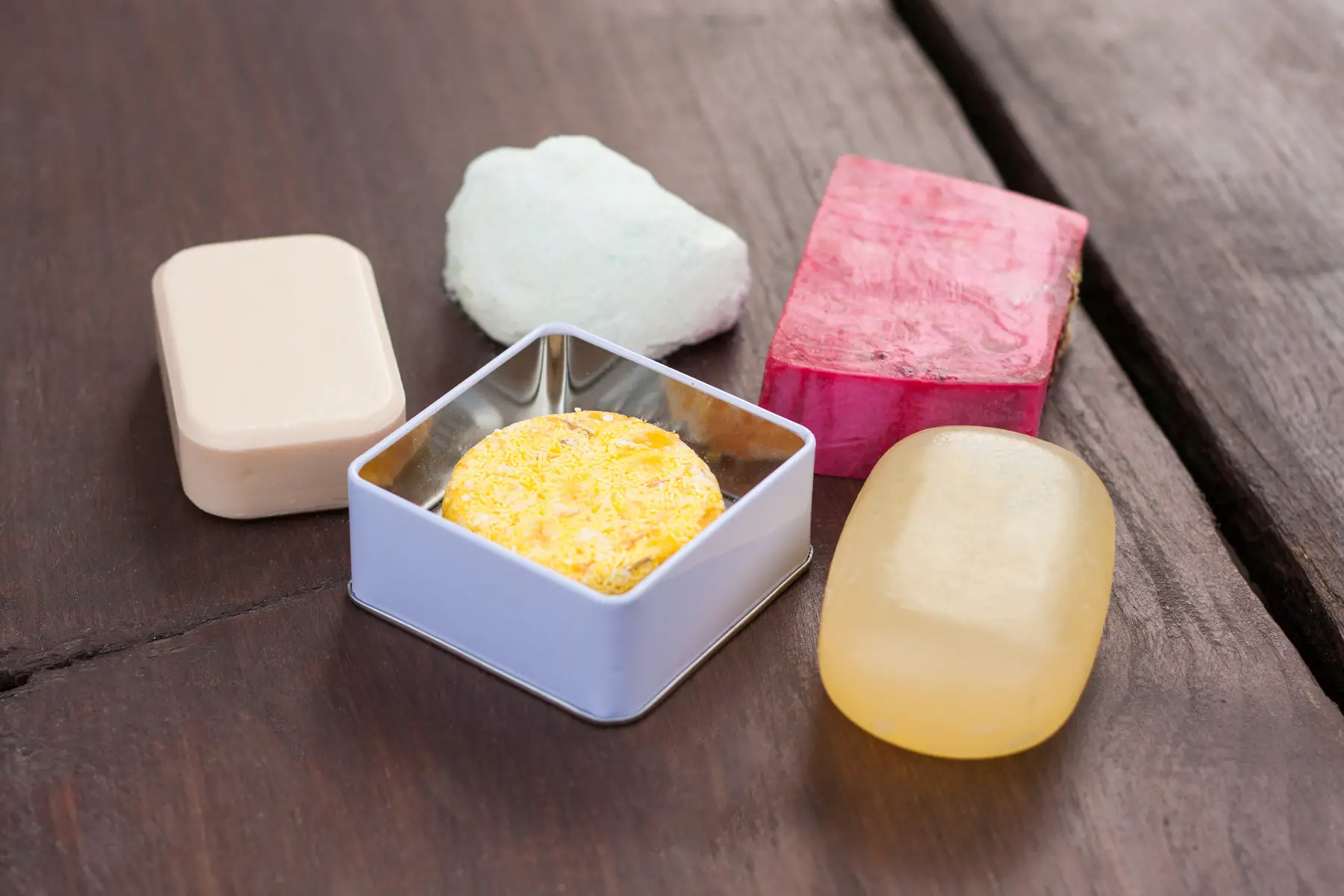
Shampoo bars are available in all sorts of colors and scents for various hair types. Major retailers like LUSH offer ones that contain high-quality, natural ingredients that give them a pleasant fragrance and hydrating qualities. These often include things like coconut oil, shea butter, rose petals, and hibiscus. Some stores also sell small tins to store the bars in while you’re on the move; making them perfect for traveling. Gone are the days of having to measure out 100ml bottles of liquid before you jet off!
